A group of Australian scientists recently gas-lit an entire global community of more than 65 million sick people. Specifically, on Long Covid Awareness Day, Queensland state department researchers, spearheaded by its chief health officer, pushed a half-baked study to trivialise the devastating condition. However, the situation has direct implications for people living with so-called ME/CFS in Australia.
In the long-standing context of the medical and media establishments’ disgusting abuse of chronically ill people in Australia – it’s plain to see how it could do this so easily.
In particular, an elitist and vested psychologising lobby has hijacked care and support for millions of people living with myalgic encephalomyelitis/chronic fatigue syndrome (ME/CFS)- a similar post-viral disease. In Australia, as elsewhere, they have paved the way to punching down on long Covid patients. And if the experience of people living with ME/CFS is anything to go by, the abuse has only just begun.
Psychologising long Covid – here we go again
On 15 March, the medical establishment published an abstract for a study claiming that long Covid is no different from the flu and other respiratory illnesses.
Queensland chief health officer Dr John Gerrard led the study, with a team of researchers from the state’s health body. As the Canary’s Steve Topple underscored, the timing of the long Covid press release for it and the overarching agenda was clear. It sought to push a particular narrative:
That is, long Covid is partly psychosomatic. The patient’s own ‘false illness beliefs‘ are making their symptoms worse. Ergo, think yourself better.
In response, the corporate media churned out a predictable gamut of click-bait headlines. Naturally, these variously proclaimed the deceptive and palpably false message that long Covid isn’t real.
As a result, the medical and media establishment marred a day for uplifting the daily lived realities of those living with long Covid.
So, Topple roundly eviscerated the long Covid study, and Gerrard’s thinly-veiled narrative agenda to boot.
In tandem, savvy folks on ME/CFS community forums pointed out that it wasn’t Queensland Health’s first rodeo when it came to belittling long Covid sufferers either.
Specifically, the state’s health department submission to Australian government’s Covid inquiry sang straight from the same medical gaslighting hymn sheet.
In this too, the Queensland government dredged up those trusty old tropes for psychologising chronic illness. As long Covid sufferer Jess Davis noted, the submission referred to the “nocebo effect” which she explained is:
essentially the opposite of placebo — means an expectation of a negative outcome that could lead to worsening symptoms. It appears Queensland Health is falling back to the tradition of saying post-viral illnesses are a psychological concern, that it’s all in your head.
Most significantly then, and as Topple once again pointed out, the psychologising spin of the long Covid study harkens back to a turgid history of medical professionals and the corporate media gaslighting people living with myalgic encephalomyelitis/chronic fatigue syndrome (ME/CFS).
ME/CFS – a devastating global illness
ME/CFS is a chronic systemic neuroimmune disease which also impacts around 65 million people worldwide. Post-exertional-malaise (PEM) is the hallmark symptom of ME/CFS, which entails a disproportionate worsening of other symptoms after even minimal physical, social, or mental activities.
These other symptoms typically include, but are not limited to:
- Flu-like symptoms
- Multiple forms of pain (such as migraine, nerve pain, and aching muscles/joints)
- Digestive problems
- Sleep disturbances
- Cognitive impairments
A 2015 study found that the quality of life for people with ME/CFS was worse than that for patients with cancer, diabetes, heart disease and other serious conditions.
What’s more, approximately 25% of people living with ME/CFS fall into the severe or very severe classification for the disease. In these cases, people with severe ME/CFS are mostly, if not entirely permanently bed-bound. What’s more, people living with the severe or very severe level of the disease are sometimes unable to digest food, communicate, or process information.
Crucially, the disease is also sometimes fatal. Topple has consistently reported on a number of people dying from ME/CFS in NHS hospitals. Notably, this is often due to routine neglect and maltreatment by the healthcare system.
In 2021, Maeve Boothby O’Neill died from very severe ME at the age of 27 after the NHS allegedly neglected her. Doctors denied her a feeding tube, and later denied total parenteral nutrition, which could have saved her life.
Moreover, as he also pointed out, the disease has already tragically killed a number people living with it.
Despite this, it hasn’t stopped a well-coordinated and vehement lobby of medical professionals and media plants from denigrating this highly vulnerable community.
A history of medical misogyny
More broadly, this has derived from a long global history of medical misogyny and trivialisation of the illness. Notably, one flawed 1970s study for instance, labelled a significant outbreak of the disease as hysteria.
This psychosomatic diagnosis, with sexist origins in tow, has persisted into the modern medical era. Of course, this also tracks, given that both historically and today, more women go on to develop the disease than men.
You can read more on the disease’s history here.
The medical establishment’s approach to ME/CFS is still mired in this same pernicious thinking. Largely, this pervasive psychologisation in recent years has come as a result of a persisting and highly controversial clinical study known as the PACE trial. As Topple has previously explained:
It was a study, part-funded by the UK government, into treatment for ME. It found that people could recover from the disease by having cognitive behavioural therapy (CBT). In other words, people living with a very-real, viral-based illness should just ‘think themselves better’. Essentially, the trial pushed the notion that the disease was part-psychosomatic or ‘made up’ by patients.
This medical model is sometimes referred to as the biopsychosocial approach to ME/CFS. Tellingly, one of the key scientists involved in the PACE trial – Simon Wessely – authored studies on hysteria in his earlier career. Alongside CBT, the PACE study pushed graded exercise therapy (GET) as a key treatment. However, this treatment has repeatedly caused harm to patients living with ME/CFS.
Moreover, multiple medical professionals and people living with ME/CFS and other chronic illnesses have dismissed the study. In fact, as Topple has explained:
the trial’s findings haven’t held up, with its proponents accused by some of scientific fraud and causing potentially the “biggest medical scandal of the 21st century.
In effect then, it has been on these highly dubious medical grounds that powerful parts of Australia’s medical establishment have had it out for sick people living with the chronic illness.
Hijacking Australia’s healthcare system
So of course, Queensland Health is just the latest to jump on the biopsychosocial bandwagon. Already, many powerful proponents of the psychosomatic view and these harmful treatments have held prominent positions of influence across the Australian healthcare system.
One of these is GP and university professor Paul Glasziou. He was the architect of the RACGP’s Handbook of Non-Drug Interventions (HANDI) guidelines on ME/CFS. This is the RACGP’s main resource for ME/CFS. Significantly, it pushes graded exercise therapy (GET) as a key treatment option for patients.
In a 2009 editorial for the Medical Journal of Australia, Glasziou also promoted a study advocating GET for patients with ME/CFS. In the article, Glasziou wrote:
I now keep the pdf file of this second article on my general practice computer to give to, and discuss with, CFS patients.
Crucially, Glasziou has also held notable roles and connections with Cochrane. This is a UK charity which produces analyses of research, reviewing multiple studies on different medical topics. International medical bodies and governments consider these a gold standard.
As such, these have shaped medical guidelines and healthcare policy across the globe. Glasziou has co-authored multiple articles with Cochrane founder Iain Chalmers, and sits on two Cochrane review groups.
However, the charity has been at the centre of controversy over its systematic reviews into ‘exercise therapy for CFS’. The latest 2019 review upheld exercise therapy – essentially GET – for treating ME/CFS. Naturally, the review, like previous versions, still relied on the flawed PACE trial. It also leaned on other GET and CBT studies that the broader medical community and patients have robustly criticised.
Exercise therapy all round for ME/CFS in Australia
While Glasziou was not an author of this particular review, he did provide “advice and additional information” to the authors alongside PACE trial primary investigator Peter White. In this paper, the authors featured Glasziou’s research in a table of information describing the “Characteristics of exercise interventions”.
On top of this, in 2014, Glasziou was a co-author on a protocol – essentially the design for – a patient data review into “exercise therapy” for ME/CFS. This was separate from the above-mentioned review, but could have provided an in-depth analysis supporting it. Moreover, this had a significant crossover. Specifically, the same author – Lillebeth Larun – led both reviews.
Controversially, for this, Cochrane agreed to list multiple PACE trial scientists as co-authors on this protocol. It did so in exchange for the inclusion of their study data. Ultimately however, Cochrane withdrew the protocol and therefore never published the review.
Nonetheless, according to Penelope MacMillan, a director of key advocacy group ME/CFS Australia, the Australian government has used the existing and contested Cochrane reviews to formulate federal policy for ME/CFS.
Weaponising welfare
Unsurprisingly then, Australia’s political class has weaponised the biopsychosocial model to push people living with ME/CFS to the margins. Predictably, it has formulated a punishing and demeaning welfare system under the auspices of this pernicious psychologisation. Of course, another key GET and CBT proponent has had his mitts all over that too.
In theory, the National Disability Insurance Scheme (NDIS) should provide permanently disabled Australians needs-based funding to access services and support. Instead, the reality is that the scheme consistently turns away and misses many severely chronically ill and disabled people.
Approximately 630,000 Australians were accessing the scheme according to the most recent quarterly figures. This means that under 15% of the 4.4 million disabled people in Australia are currently receiving this government social security.
This is because the criteria for claiming this form of state support is extremely restrictive. Moreover, the application process itself is hugely inaccessible to severely chronically ill and disabled people who have little to no care.
Australia’s National Disability Insurance Agency (NDIA) administers the scheme. An ME/CFS campaign group – Call for Change Australia – found that for its eligibility assessment, the NDIA had sought guidance on ME/CFS from just one medical professional.
Specifically, the NDIA paid professor Andrew Lloyd as its sole advisor on the disease. But of course, Lloyd too is an infamous adherent of the harmful biopsychosocial model in Australia.
Outdated guidelines and abusive clinics
For one, he was a member of the working group that put together the outdated 2002 Royal Australasian College of Physicians (RACP) ME/CFS guidelines. Naturally, these early guidelines also promoted GET and CBT. The RACP has failed to update these guidelines in over two decades. Despite this, these are still available to clinicians today to guide their care of patients with ME/CFS.
What’s more, Lloyd is director of the University of New South Wales (UNSW) Fatigue Clinic. There, practitioners treat what it terms “chronic fatigue conditions”, which it states include:
chronic fatigue syndrome (CFS), post-cancer fatigue (PCF), post-viral fatigue syndrome (PVFS), or post-infective fatigue syndrome (PIFS).
Needless to say, the clinic trivialises these chronic illnesses, describing how they present:
disabling symptoms featuring ‘tiredness’ or fatigue, which is exacerbated by relatively minor physical or cognitive (brain) activity; poorly understood disease mechanisms; and limited treatment options.”
Invariably, the clinic utilises GET and CBT as its key treatments. Given all this, it’s perhaps unsurprising that Lloyd’s advice to the NDIA was also highly problematic.
Ignoring the evidence with ME/CFS in Australia
Firstly, Lloyd purportedly advised that the disease is mostly non-permanent. Specifically, he told the NDIA that:
many individuals recover without intervention over weeks to months, but approximately 10% will meet diagnostic criteria for ME/chronic fatigue syndrome at six months.
This contravenes a body of evidence which has found that most people with ME/CFS never fully recover. In fact, less than 6% are in remission from the disease. On top of this, Lloyd’s advice on the number of people that develop severe ME/CFS contradicted the current consensus. Lloyd had advised that:
Of these, a small subset may go on to suffer from both severely disabling and very prolonged (greater than 5 years) ME/chronic fatigue syndrome – these patients may be housebound or even bed-bound as a result of the illness and despite best available evidence-based management.
Contrary to Lloyd’s “small subset” however, 25% of people diagnosed with the disease face the severe end of the scale. Ignoring this and the frequency of the disease in general, Lloyd proceeded to provide advice which could undermine and cause harm to people living with ME/CFS applying for the NDIS. In particular, he determined that:
when the ME/chronic fatigue syndrome has been present in a stable, non-improving pattern, despite evidence-based management (such as … CBT, … GET and cognitive remediation) for 5 years, the Australian expert guidelines indicate that the condition should be regarded as permanent for medico-legal purposes.
And indeed, the NDIA has built this into its criteria. In fact, research by Call for Change Australia in 2022 identified that, based on Lloyd’s advice:
the NDIA required patients to do Graded Exercise Therapy (GET) and Cognitive Behavioural Therapy (CBT) to qualify (the current NDIA Technical Advisory Branch recommendations say patients must do 12-26 weeks of GET 3-5 times per week with 5-16 CBT sessions)
Sky-high benefit rejection rates for people with ME/CFS
Accordingly, under Lloyd’s input, the NDIA has been perfectly poised to deny people living with ME/CFS support from the scheme.
A 2019 NDIS progress report to parliament found that, as of 30 September 2018, the overall rejection rate for applicants to the scheme was 14%.
Comparatively, the rejection rate for people living with ME/CFS is up to five times this. According to information obtained by Call for Change Australia in December 2022, the NDIA has rejected 71% of applications from people with ME/CFS.
More recent figures from another Freedom of Information (FOI) request seen by the Canary provided similar findings. It suggested that as of 30 June 2023, the rejection rate for people living with ME/CFS stood at 64% of those who have applied*.
The FOI revealed that at that date, just 90 people with ME/CFS listed as their primary condition were accessing the scheme. Alongside this, 93 people who listed it as a secondary condition were also accessing it. Meanwhile, studies have estimated that between 0.4 to 1% of the population live with ME/CFS.
This means that up to 250,000 Australians are living with the disease. However, some research has suggested this is likely an underestimate and that the rates are much higher – potentially affecting nearly 600,000 Australians.
Even with the lower estimate, this would mean that approximately, over 60,000 Australians are living with severe ME/CFS. Therefore, supposing that all 193 people accessing it fall into this classification, just 0.3% of the people living with severe ME/CFS are currently accessing the NDIS.
Sabotaging the social security safety net for ME/CFS Australia
Given that the NDIA only sought Lloyd’s advice, fully knowing his position championing the biopsychosocial model of ME/CFS, and paid him for this, it’s wholly conceivable it did so deliberately. Obviously, this is especially salient in light of the sky-high rates of rejection for people living with ME/CFS who do apply.
What’s more, it chimes with similar contentions over the vested interests of the UK Department for Work and Pensions (DWP) in its funding of the PACE trial. Specifically, an SNP MP previously accused the DWP of financing the study to use it as justification to cut disabled people’s benefits.
As the Canary has previously pointed out, part of this was about pushing people into the hands of the insurance industry. Notoriously, key PACE study authors held connections with large insurance companies. On top of this, the biopsychosocial model from which the PACE scientists hail, has also shaped draconian reforms in UK disability benefits.
Most notably, Professor Peter White previously did paid consultancy work for US firm Unum. The reinsurance company formerly boasted of driving welfare reform in the UK. Needless to say, this had the effect of preventing disabled people from accessing benefits. As the Canary detailed:
As a consequence of more holes appearing in the social security safety net, more people are likely to take out IPI, increasing UPI’s profits.
Machinations of a dark money think tank
So, the NDIA’s restrictive eligibility criteria for disability benefits in Australia also mirrors this corporate capitalist agenda too.
Moreover, it is entirely on brand with the capitalist origins of the NDIS. Contrary to the then Labor Australian government’s purported progressive aims, the NDIS was modelled on a dark money think tank’s report.
The right-wing Institute of Public Affairs (IPA) devised the voucher system that the government later took up for the scheme. Its overarching premise was to shift disability services from the government, into the hands of the free-market. Essentially, private companies could bid for contracts to provide these services.
At the same time, the introduction of this new disability benefit provided the impetus for the government to scale back its existing disability welfare support. Writing in 2013 for the World Socialist Web Site, Patrick O’Connor explained how this would operate in practice:
While about 800,000 people are currently on the DSP, the Productivity Commission anticipates that just over 400,000 would be able to access the NDIS, with the rest–hundreds of thousands of disabled people–being shunted into the low-wage workforce.
As such, it plays perfectly into the right’s deliberate narrative of benefit claimants as work-shy malingerers and drains on the public purse. A disability welfare system denying payments to people living with ME/CFS is therefore doing exactly as capitalists planned. In other words, the abuse is by design.
Leaving the door wide open to GET
Of course, both Lloyd and Glasziou’s influence hasn’t stopped there. In recent years, both have continued to dominate the conversations about the future of ME/CFS research and treatment in Australia, alongside other prominent medical professionals wedded to the biopsychosocial school of thought.
In 2018, Australia’s National Health and Medical Research Council (NHMRC) appointed Lloyd to its ME/CFS advisory committee. Together, members produced a report to advise the NHMRC’s CEO on the research needs and required updates to the clinical guidelines for ME/CFS in Australia.
Lloyd sat on this seven-strong panel of medical professionals, alongside fellow GET adherents Dr Suzanne Broadbent and Dr Kathy Rowe. On publication, ME Action said of the final report that:
The recommendations are forward-looking and, if implemented, would represent significant progress for Australians with ME/CFS.
However, the organisation tempered its enthusiasm. It stated that the membership of the committee meant that ME/CFS advocacy groups and patients were unable:
to release ourselves from the shackles of graded exercise therapy (GET).
More specifically, the report itself fell short of recommending that clinicians in Australia cease the harmful treatment. Instead, it capitulated to endorsers of the biopsychosocial model, stating that:
The Committee noted that GET should not be offered as a cure for ME/CFS but that it might have a role in a patient’s overall management strategy, helping with any secondary anxiety, de-conditioning and stress.
In other words, the report left the door wide open to GET, and in doing so, ME/CFS patients to more abuse.
Keeping up the PACE for ME/CFS Australia
More recently, Glasziou and Lloyd were also among around 50 international clinicians who penned a critique of the new UK National Institute for Health and Care Excellence (NICE) guidelines for ME/CFS. By contrast to the NHMRC report, after a concerted campaign by people living with the disease and advocates, NICE removed GET and downgraded CBT as treatments for ME/CFS.
So naturally, Glasziou, Lloyd, and company took issue with this. Once again, some of the primary investigators that conducted the PACE trial co-authored the critique.
Unsurprisingly, this upheld the PACE trial’s findings. Moreover, it was critical of NICE’s removal of GET and its downgrading of CBT. In the conclusion, the authors stated that they were “concerned” that:
this new guideline will effectively deny clinicians the ability to offer GET and evidence based CBT to those patients who want them and risks perpetuating chronic ill health and disability.
In other words, the critique authors have doggedly maintained the findings from the PACE trial. Of course, this is in spite of damning clinical reviews and reanalyses of the study, alongside numerous patient reports of harm from the key treatments it promulgated.
Corporate media complicity over ME/CFS in Australia
Inevitably, where powerful capitalist establishment forces tread, its media lapdogs invariably follow.
Notably, Australia’s public broadcaster, the Australian Broadcasting Company (ABC) has played a considerable role in cementing this psychologisation in the Australian public psyche. Primarily, it has done so by affording recurrent airtime and coverage to scientists with a biopsychosocial bent.
In one 2001 study, a group of UK psychiatrists and clinicians extolled the supposed benefits of “home based graded exercise”. However, numerous scientists and patient ME/CFS organisations criticised the research and highlighted a number of flaws. Nevertheless, this didn’t stop ABC Radio’s Health Report uncritically interviewing an author of the study and promoting its findings.
Following this, in 2004, the same radio programme picked up another study pushing GET and CBT. Once again, the show interviewed a study author – in this instance Australian scientist Karen Wallman. At the time, Melbourne-based state newspaper The Age also publicised Wallman’s study.
Then, in 2007, ABC held a dialogue between multiple scientists discussing the disease. So, who did ABC invite onto the radio show to introduce GET and CBT? None other than Dr Andrew Lloyd of course.
Promoted by a “corporate industry spin doctor”
Ostensibly, these programmes paved the way for ABC’s coverage of the PACE trial. In another episode of Health Report, PACE study primary investigator Michael Sharpe plugged the study. Ultimately, the public broadcaster was central to proselytising the sanctimony of the biopsychosocial model and treatments to an Australian audience.
Notably, it was a press briefing interface, the Science Media Centre (SMC) that spoon-fed this last example to the corporate press en masse. However, the Canary’s Steve Topple has previously branded the SMC a “corporate industry spin doctor”. And for good reason, given its chequered past shilling for a cacophony of capitalist interests.
Then, there’s the not so small fact that ABC have been a long-time sponsor and ardent suck up to the SMC’s Australian branch AusSMC. Taking all this together, it points to a deeply entwined corporate nexus pushing out science at the behest of vested interests.
In this instance, a complex web of insurance companies, neoliberal political, and elite medical professional machinations coalesced to throw people living with ME/CFS under the bus.
Evidently, a new wave of biopsychosocial fanatics are now using the same corporate-spin-doctor-to-media-shill pipeline to launder their obstinate psychologisation of long Covid too. Crucially, it was the AusSMC’s science portal Scimex that pushed Gerrard’s junk science.
The violence against long Covid and ME/CFS patients is intentional
Ultimately, Australia’s biopsychosocial actors are doing their damnedest to relegate chronically ill people under the thumb of corporate capital interests.
The abuse, neglect, and gaslighting these malign forces have meted out against long Covid and ME/CFS patients is a feature. In other words, the violence of state services – buoyed by a burgeoning biopsychosocial network – is entirely intentional.
It’s an inherent necessity of the corporate capitalism which it underpins.
As this latest long Covid shower demonstrates, Australia’s own psych lobby are very much alive and kicking. However, in the real-world, the consequences for people living with ME/CFS and long Covid can be devastating. And heartbreakingly, it is sometimes even deadly.
Feature image via Hannah Sharland
By Hannah Sharland
This post was originally published on Canary.
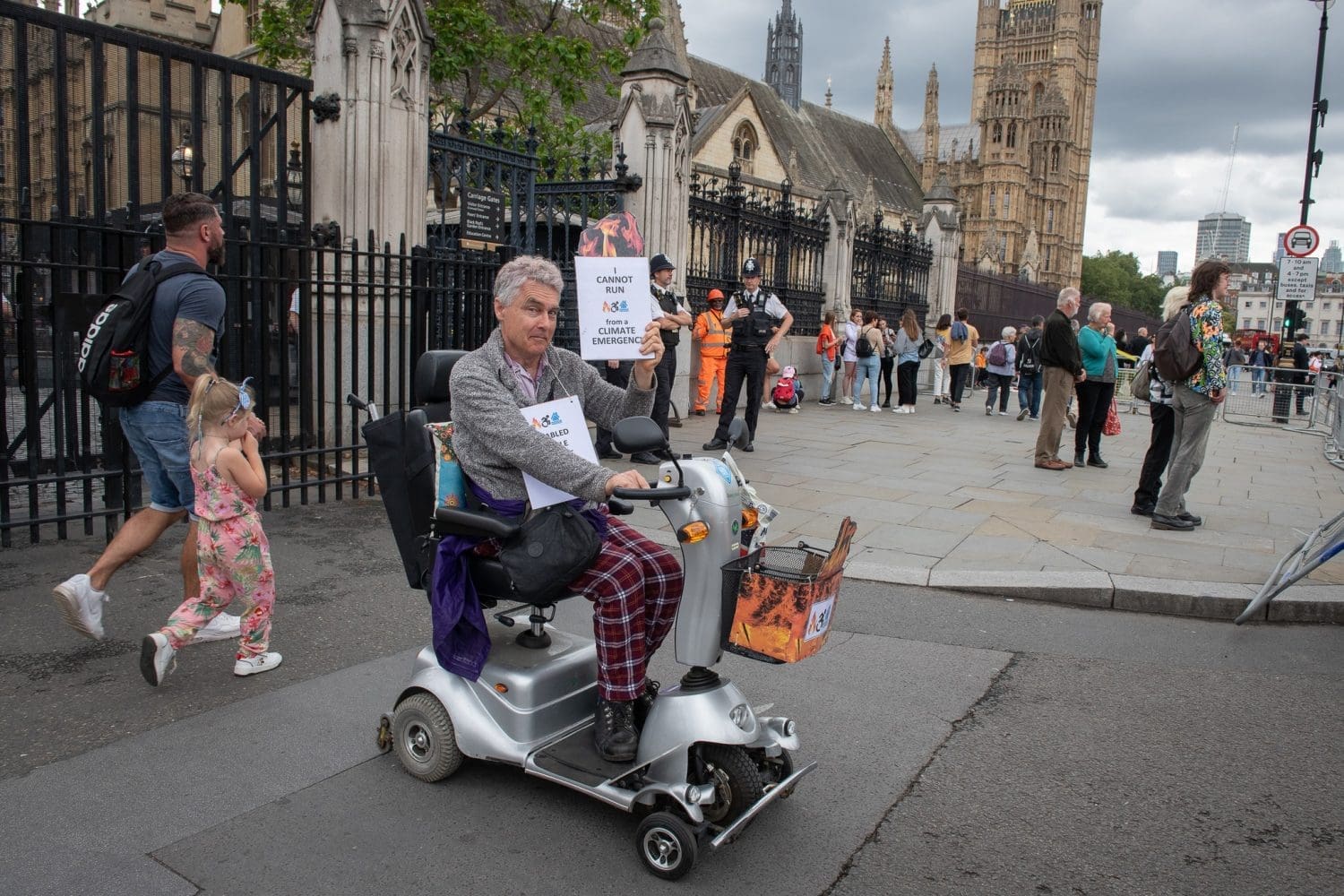









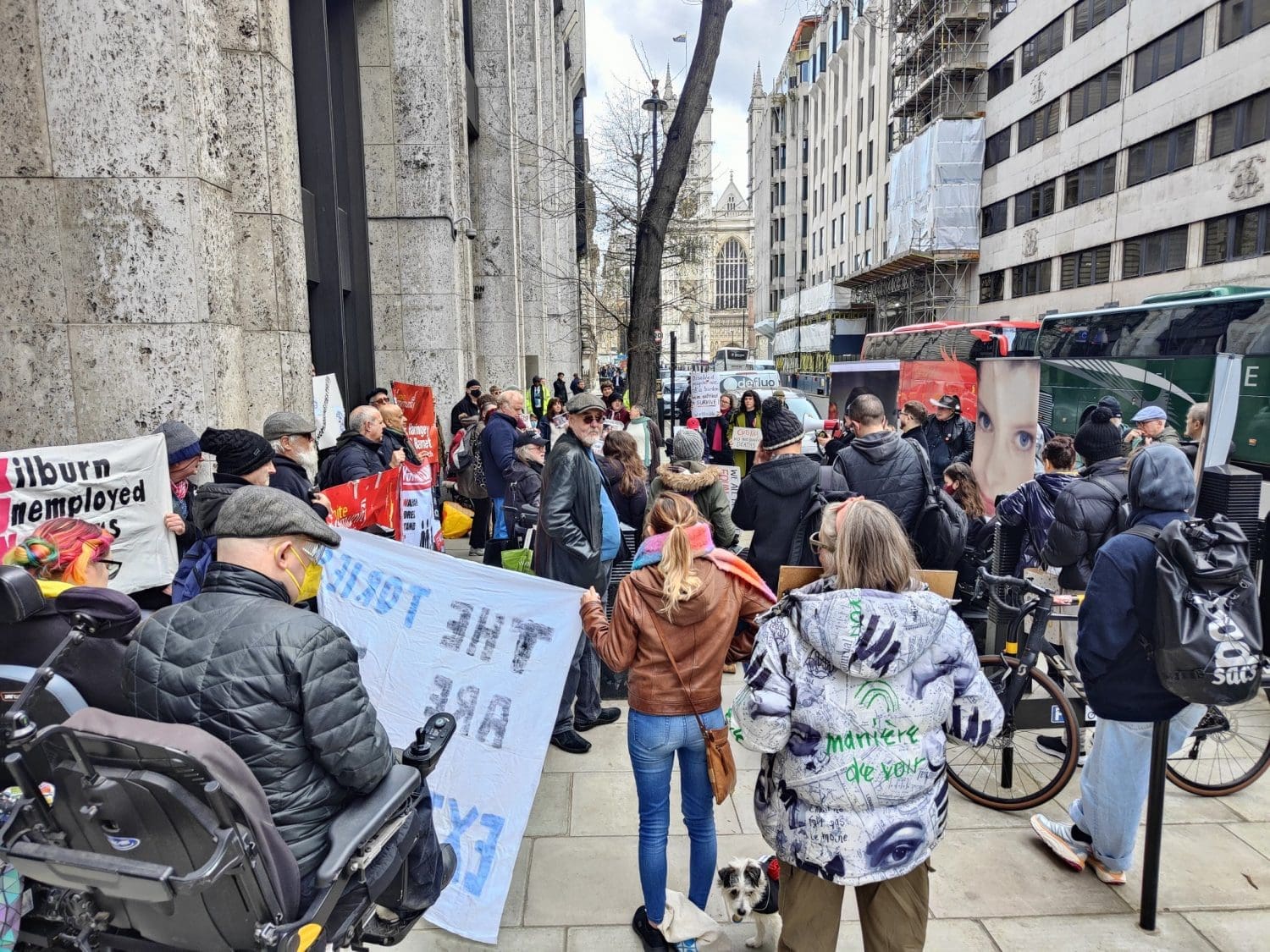
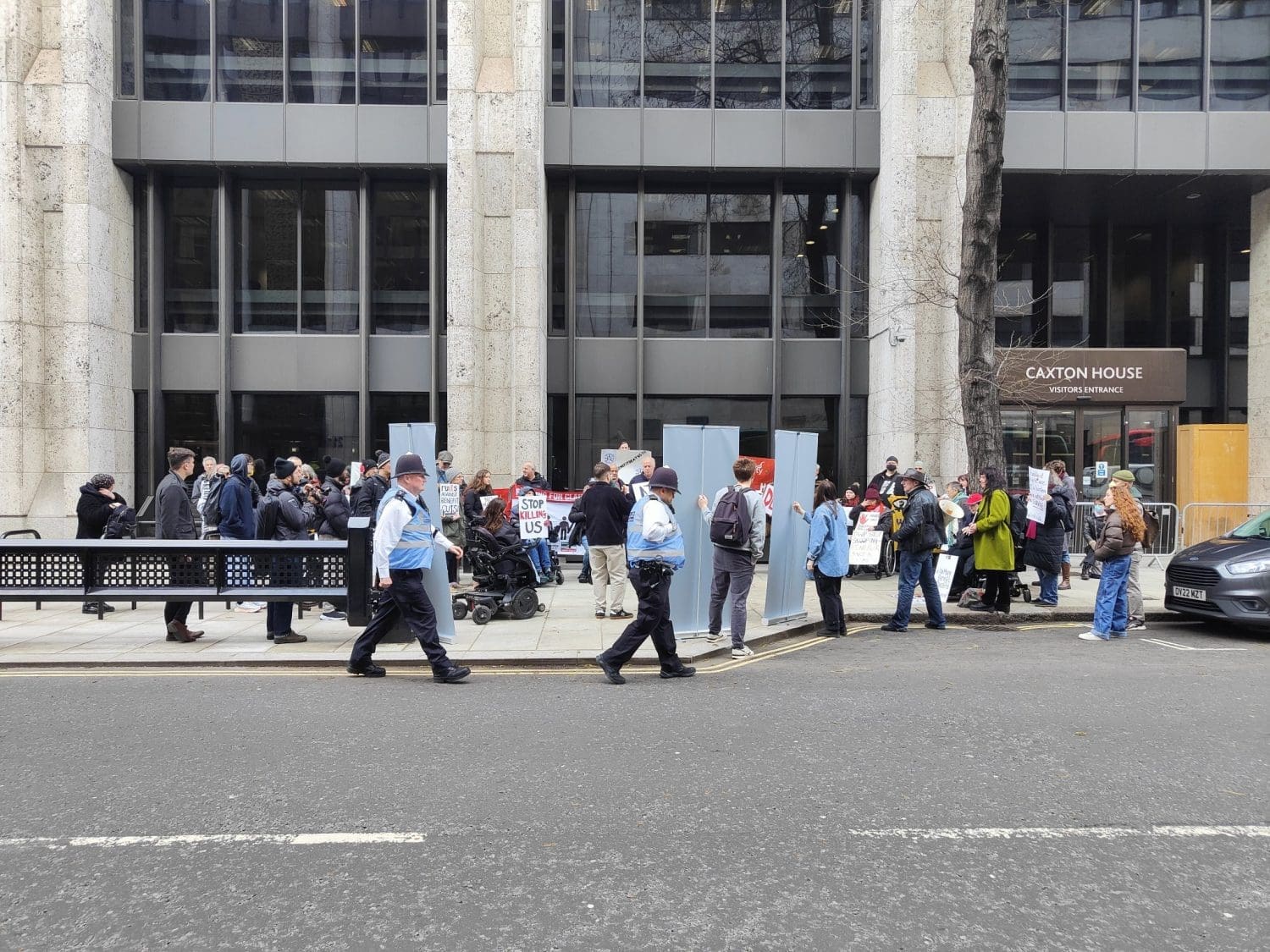
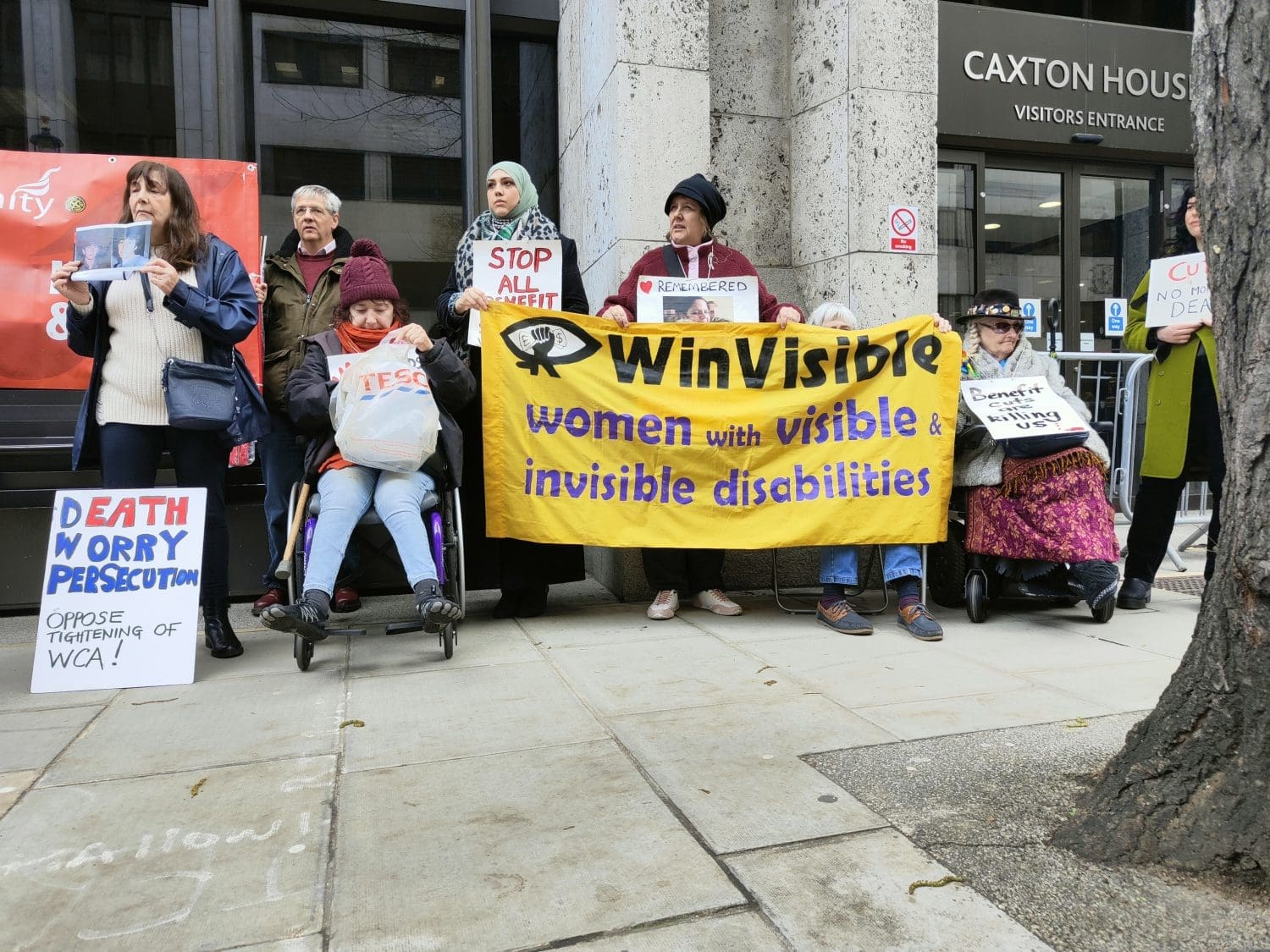
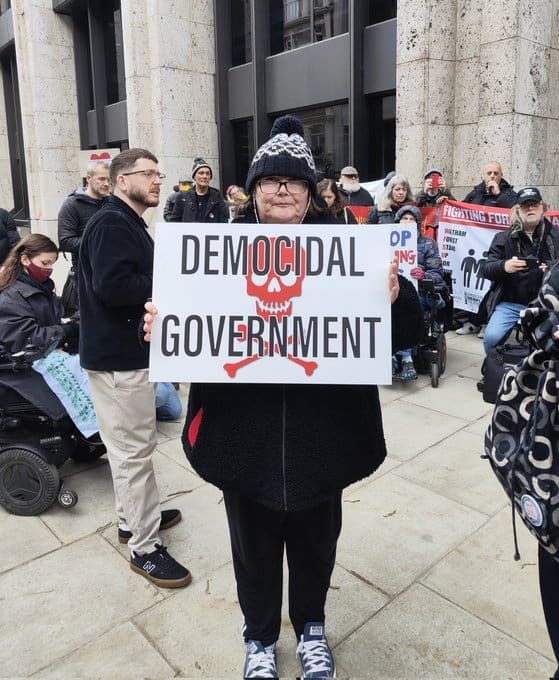
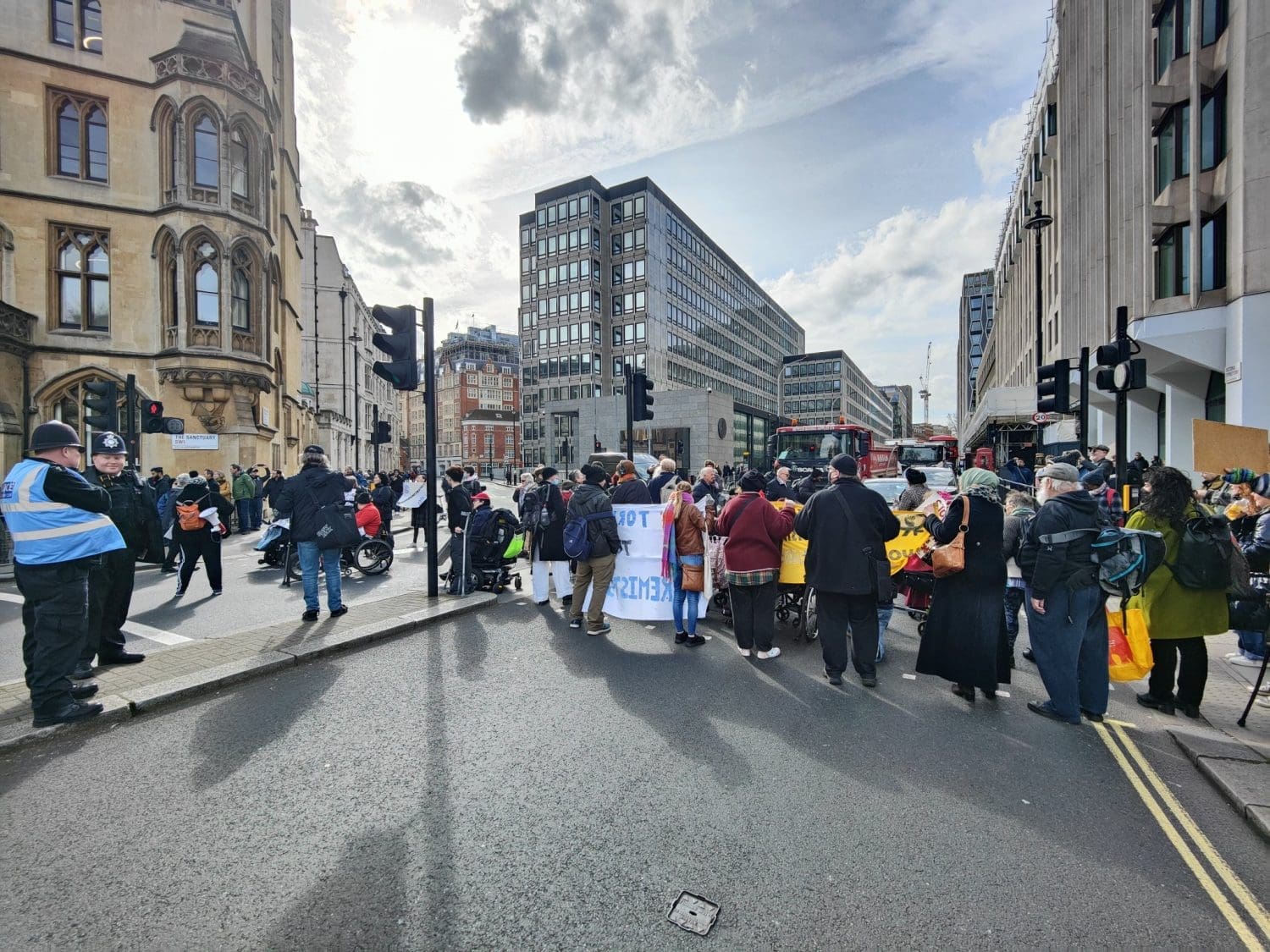
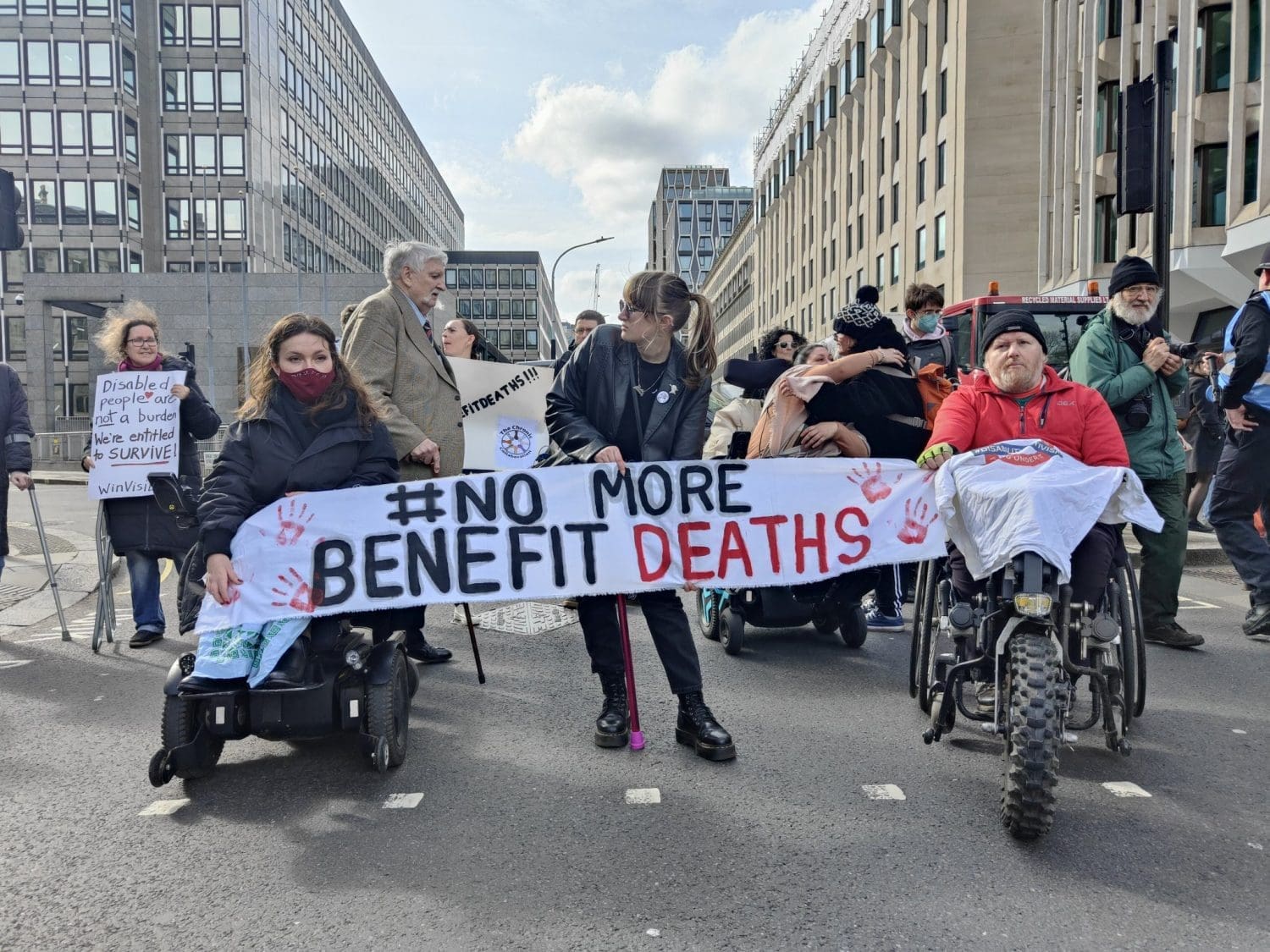
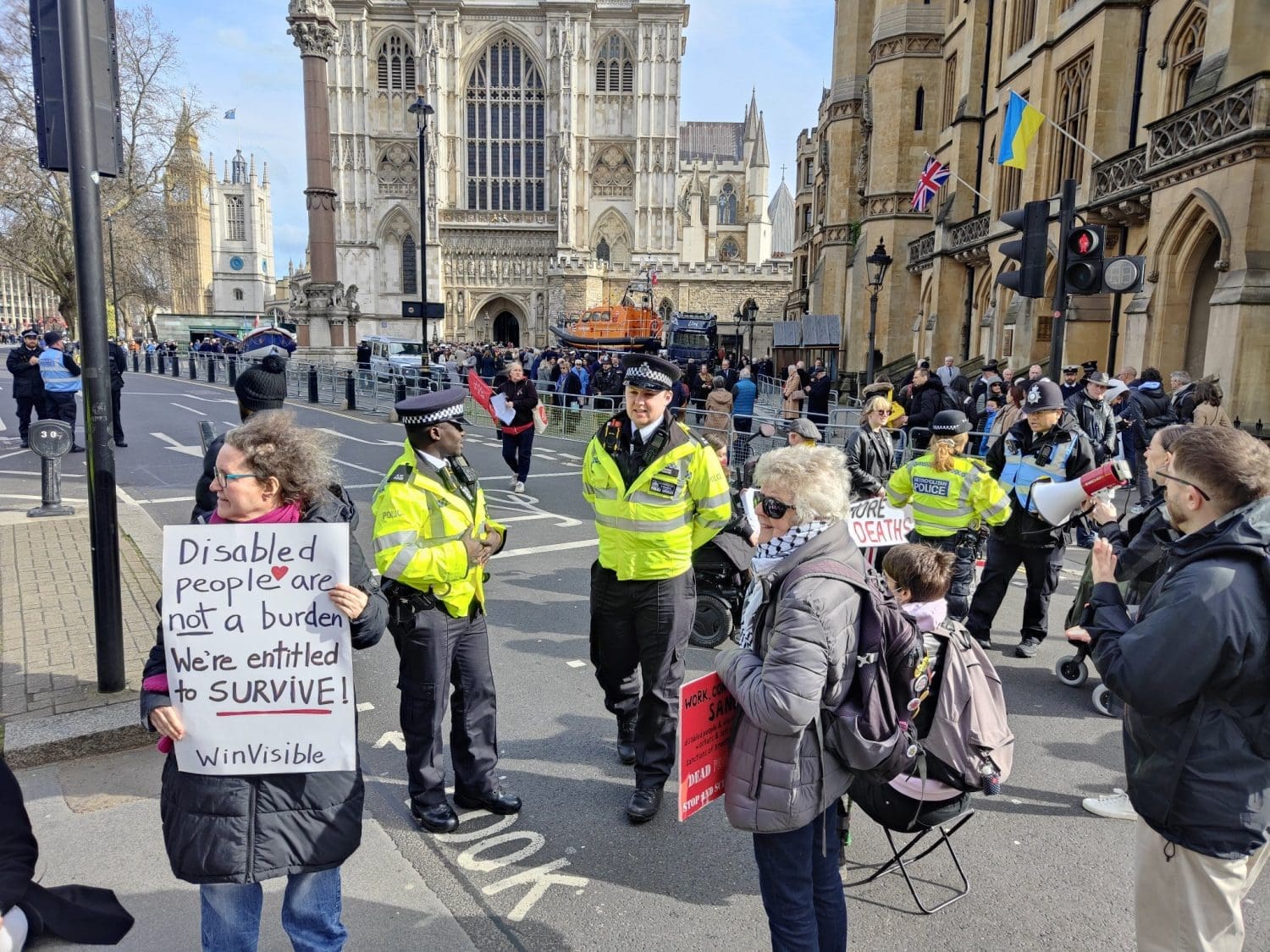
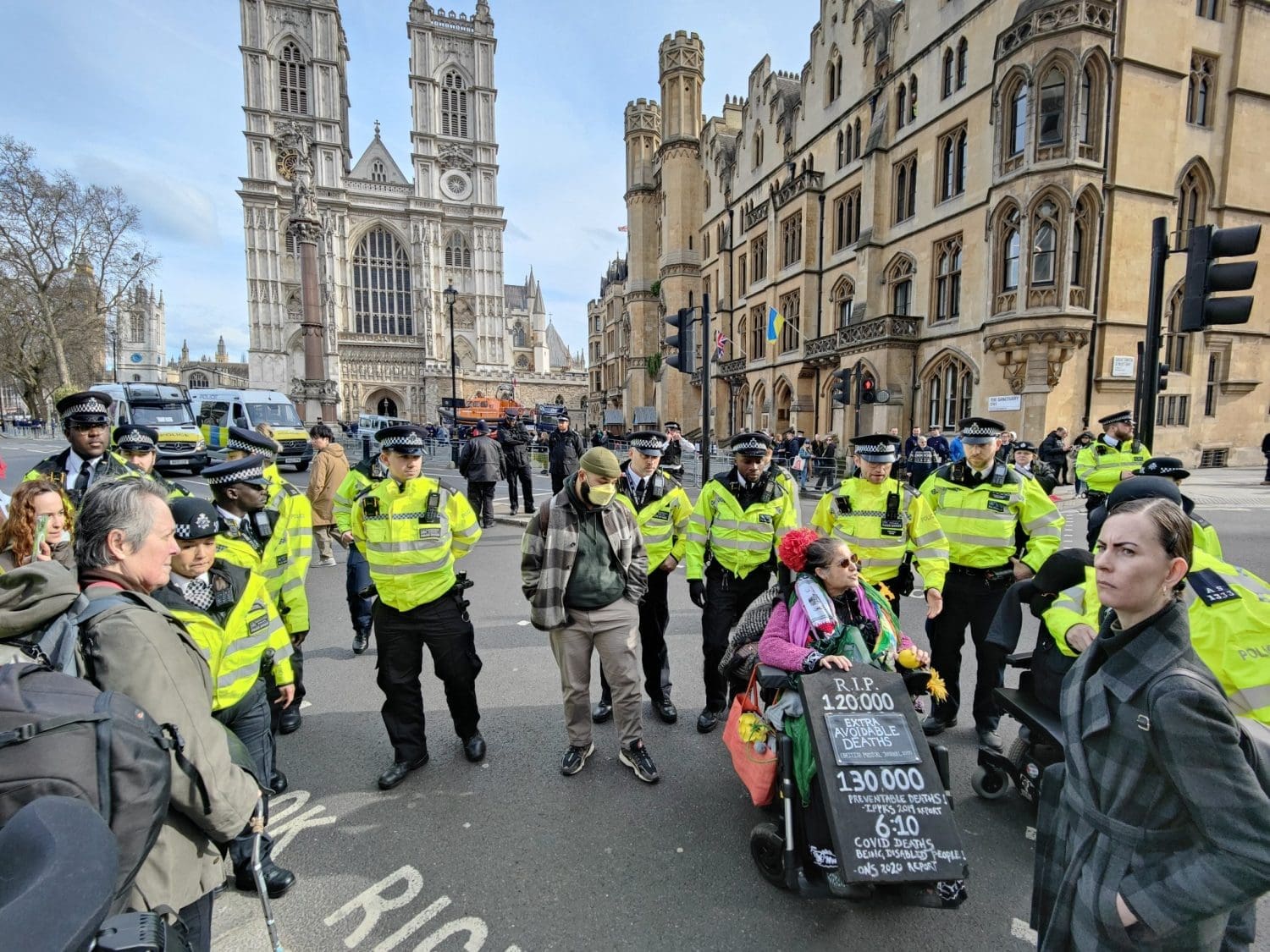
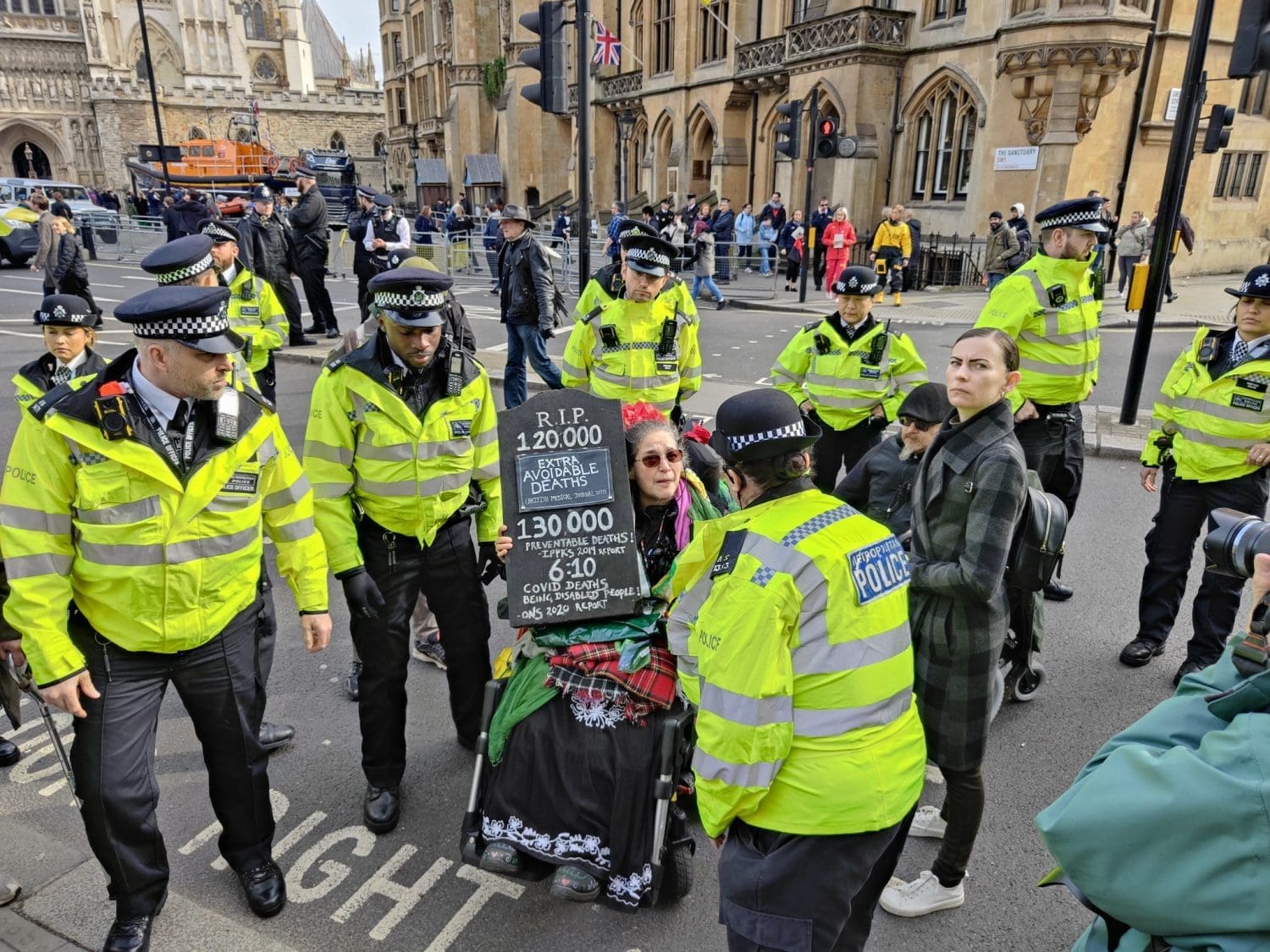
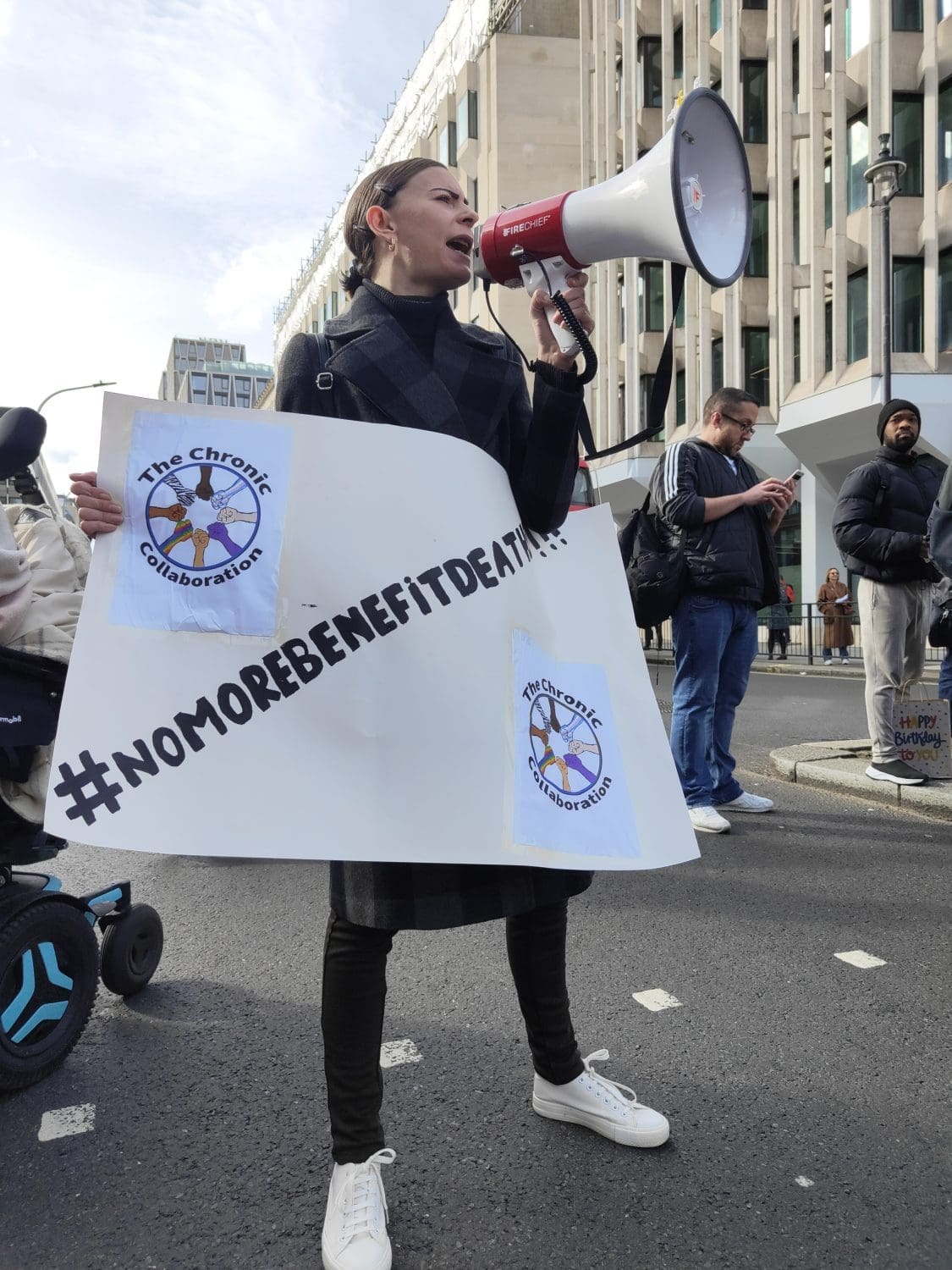
 National Day Of Action
National Day Of Action 




